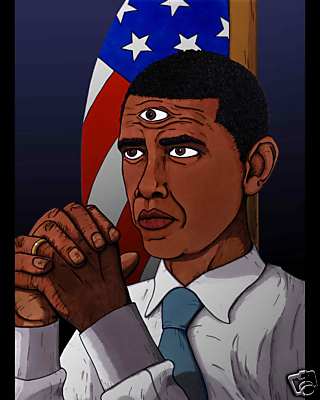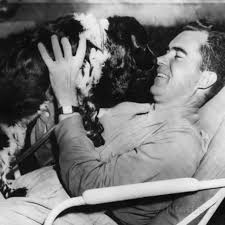One man in the same bar as Mr. Lally, Callahan’s bar at 235 Flatbush Avenue, refused to give his name but declared emphatically: “So far neither one of these guys has said anything.”
Mr. and Mrs. John F Kennedy of Stuyvesant Town — and no relation to the Democratic candidate — said they did not watch the debate. “What show you talking about? asked Mrs. Kennedy when asked for a comment. “Oh, the television show. We were out visiting.”
Many of the first, quick samplings showed that a considerable number of voters were apparently far from making any vote decision yet.
“For tonight, I’d say Senator Kennedy was the better TV performer,” said Louis Votino, a teacher. “Would he be a better president? I don’t know. I don’t think either one was too articulate. The debate has not changed my mind at all. I’m still unconvinced.”
“The program was very upsetting,” said Virginia Lichtner. “Nixon seemed more interested in presenting a pleasant facade: everytime he spoke he seemed to end it with a little smile. He seemed to say, ‘Yes, I want more education,’ but he wouldn’t say how he was going to get it. Kennedy seemed to have a quicker mind.”
Dan Rosenbloom said: “I think Mr. Nixon did a very good juggling act. He made it sound as if the Administration was doing everything the people want. Mr. Kennedy impressed me as someone who is just trying to get across some of the things he failed to help get through the Congress. Neither impressed me too much.”
A partisan group of about 400 persons called by the Citizens for Kennedy, was gathered at the Delmonico Hotel to watch the debate. The audience of Democrats was restrained, but when some of them thought that Mr. Nixon looked uncomfortable or pressed by Senator Kennedy in the political exchange they would cheer or applaud.
Even there, however, there was a general satisfaction that the debate was showing the voters both candidates in a face-to-face challenge. Mrs. Nona Dowd called it a “wonderful program for both of them” and said that she thought they were both pretty close to each other on ideas.
Alvin Hellerstein, an attorney, watched with the same group. He said he thought that Mr. Kennedy had given an appearance of great vigor and seriousness but that Mr. Nixon had seemed to be talking down to the people.
Cheers and applause Mr. Nixon echoed* at the Federal Republican Club, where about 125 party members had gathered. General silence greeted Mr. Kennedy when he was in view on the screen.
Bernard Newman, New York County Republican leader said: “Mr. Nixon’s maturity and experience showed through clearly and unmistakenly while Mr. Kennedy seemed to want to be all things to all men on all issues.”
To Nicholas Atlas, former Assistant United States Attorney, Senator Kennedy appealed to nostalgia. “He was talking to the generation that was gone,” Mr. Atlas said. “The New Deal is behind us.”
Both candidates appeared well-informed in the opinion of Mrs. Anne J. Mathes, a lawyer. “But Kennedy was emotional and seemed scared,” she said, “while Nixon struck to the point and was logical.”
Mrs. Jesse Lehman said: “I was surprised at Mr. Nixon’s very defensive attitude. he seemed to justify his position on the basis of the fact that Mr. Kennedy agreed with him. Mr. Nixon said very little effectively. Mr. Kennedy was very forthright. I was pleasantly surprised at the way he handled himself. I thought he was outspoken, clear and to the point.”
Not everyone was satisfied with last night’s political substitute for the usual far of entertainment. One woman reached by telephone said she watched the first half of the program, and then fell sound asleep.
A rubbish collector, John Marrone, was sold on Senator Kennedy. “I like his stand on old-age pension and all that stuff,” he said. “And I don’t like Nixon. Those Republicans don’t live up to their promises.”
There was some disappointment over the absense of oratorical fireworks. Some viewers said they had not been expecting so much politeness between the two candidates. Jerome I. Levine said: “There wasn’t much said. They kept repeating over and over that ‘it’s a matter of mean.’ They were both very impressive and seemed to have firm convictions. But there were too many generalizations. It seems they were just being very nice to each other.”
“I thought that Nixon was more effective,” said Mrs. Thomas Madigan. “He wants to keep the Federal Government out of the affairs of state government. […]”
Mrs. Henry Mason liked the show and thought there should be more like it, but she offered no estimate of which of the two candidates had impressed her the most. “I wouldn’t want to commit myself,” she said.
Florence Mervis thought the debate was “very good” and that “Kennedy showed up much better than Nixon.” However, she doubted that it had added anything to her understanding of the issues.
A housewife with two children in high school thought the program and the others to follow would have a definite influence on her vote. “The personality of the men showed through,” said Mrs. Jerome Gilbert. “They could reach me where they never could have otherwise.”
Three quarters of the people at a listening house party in Montclair, NJ felt that Senator Kennedy had the better of the debate. Many thought the Vice President seeemed nervous, but there were some who thought that this was a deliberate affectations.
Most of the group at the party felt that Senator Kennedy not only introduced most of the concrete points of the program in his presentation but also accounted best in the give and take. “Kennedy looked less like Henry Aldrich,” said one of the guests, a Columbia University professor.
“I resent the fact that Nixon has lost his jowls and Kennedy seems to have picked them up,” said a housewife and member of the League of Women Voters.
“I think Nixon showed up remarkably well in the question and answer period,” said one housewife. “He looked particularly well when he was asked to comment on what he had contributed in the way of concrete program to the achievements of the Eisenhower Administration in the last eight years.”
…*Their typo, not mine. I made some minor edits all around, and shifted paragraphs into each other.



